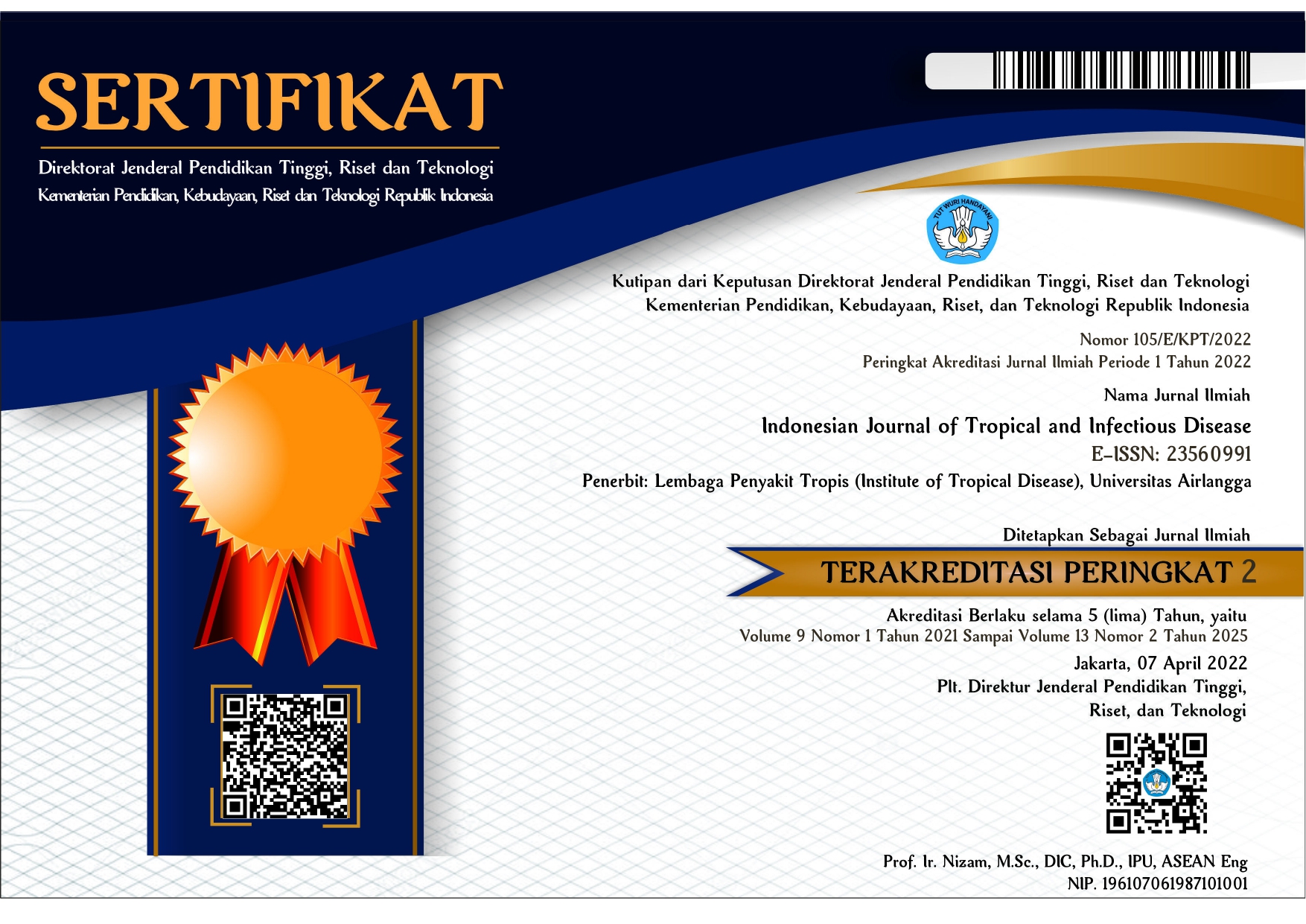Publication Ethics
Publication Ethics
PUBLICATION ETHICS AND MALPRACTICE STATEMENT
At IJTID, we are dedicated to upholding the highest standards of publication ethics in order to foster a responsible and ethical research environment. Our commitment lies not only in disseminating valuable knowledge but also in maintaining integrity, transparency, and ethical behavior throughout the publication process. To ensure this, we have developed comprehensive publication ethics guidelines, which adhere to the principles set forth by the Committee on Publication Ethics (COPE).
IJTID is dedicated to maintaining the highest standards of publication ethics to create a responsible and ethical research environment. We are committed to not only sharing valuable knowledge but also upholding integrity, transparency, and ethical conduct throughout the publication process. To ensure this, we have developed comprehensive publication ethics guidelines that align with the principles established by the Committee on Publication Ethics (COPE).
- Authorship
Authorship and the responsibilities associated with it form the foundation of ethical publishing. We believe that authorship should be based on substantial contributions to the research. To ensure proper credit is given, we require authors to meet specific criteria, as outlined by COPE. All listed authors must have made significant intellectual contributions to the study. The corresponding author has the responsibility to ensure that all co-authors have reviewed and approved the final version of the manuscript before submission. Additionally, authors are expected to provide accurate affiliations, contact information, and disclose any potential conflicts of interest that may affect the study's integrity.
- Misconduct
2.1 Research Misconduct: If there is suspicion that research was not conducted ethically, the Editor may reject the manuscript and inform relevant third parties, such as the author's institution and ethics committee. Proven misconduct in published articles, or significant undermining of scientific integrity, may lead to retraction.
2.2 Data Falsification and Fabrication: Data falsification involves manipulating data to give a false impression, such as altering images or removing outliers. Data fabrication involves making up research findings. Issues regarding data integrity during or after peer review will be referred to the Editor, who may request anonymized underlying data for verification. Failure to produce original data may result in rejection or retraction, with suspected misconduct reported to the author's institution.
2.3 Publication Misconduct: IJTID follows COPE guidelines for handling potential publication misconduct.
2.4 Duplicate Publication: Authors must be transparent about potential overlaps or duplications. Any potentially overlapping publications should be declared and cited. Manuscripts should not have been formally published elsewhere. If requested, ‘in press' or unpublished manuscripts should be made available to the Editor. IJTID reserves the right to assess potential overlaps on a case-by-case basis.
2.5 Citations: Research and non-research articles must cite relevant literature to support claims made. Inappropriate citation practices, such as excessive self-citation, coordinated self-citation among authors, and unnecessary citation of the journal to which the paper is submitted, are not allowed.
2.6 Plagiarism Policy: Originality and the avoidance of plagiarism are crucial aspects of ethical publishing. At IJTID we strongly emphasize that all submitted manuscripts must be original and not previously published or under consideration elsewhere. To safeguard against plagiarism, we encourage authors to appropriately cite and reference the work of others and use plagiarism detection software during the review process.
Originality and the avoidance of plagiarism are crucial aspects of ethical publishing. IJTID, we place a strong emphasis on the requirement that all submitted manuscripts should be original and not have been previously published or under consideration elsewhere. To safeguard against plagiarism, we encourage authors to properly cite and reference the works of others and utilize plagiarism detection software throughout the review process.
- Ethical Adherence
Research involving human participants, human material, or human data must adhere to the guidelines set forth in the Declaration of Helsinki and receive approval from a relevant ethics committee. Research ethics and informed consent are paramount in studies involving human and animal subjects. We require authors to adhere to ethical guidelines established by the Declaration of Helsinki or other relevant guidelines, ensuring that appropriate informed consent has been obtained and that the research has received approval from institutional review boards. Furthermore, authors are encouraged to disclose any potential conflicts of interest that might influence the research or its reporting.
When it comes to research that involves conducting experiments on animals, the authors have a responsibility to thoroughly evaluate the potential harm inflicted on the animals. This entails carefully scrutinizing the specific procedures and experiments, as well as the quantity and species of animals utilized. It is crucial that the animals involved in the experiments comply with both institutional and national guidelines. Additionally, the manuscripts must explicitly state that all possible measures were taken to minimize animal suffering.
When conducting research involving animal experiments, it is the responsibility of the authors to carefully assess the potential harm that may be caused to the animals. This includes a thorough examination of the specific procedures and experiments conducted, as well as the number and species of animals used. It is of utmost importance that the animals involved in the experiments adhere to both institutional and national guidelines. Furthermore, the manuscripts must clearly state that all necessary steps were taken to minimize animal suffering.
For all research involving human subjects, it is necessary to obtain informed consent from the participants (or from their parents or legal guardians if the participants are children and adolescents under 18), and a statement confirming this should be included in the manuscript. For studies involving vulnerable groups (such as unconscious patients) or potential coercion (such as prisoners), or in cases where consent may not have been fully informed, manuscripts will be evaluated at the editor's discretion. Such cases may require further examination by an internal editorial oversight group. Consent is required for all types of personally identifiable information, including biomedical, clinical, and biometric data. Regarding studies on human transplantation, authors must affirm that no organs or tissues were sourced from prisoners and must identify the institutions, clinics, or departments from which the organs or tissues were procured. Authors may be asked to provide documentary evidence of consent if requested.
- Trial Registration
The trial registration number (TRN) and the registration date should be provided as the last line of the manuscript abstract.
Publishing study protocols helps to prevent the non-publication of research findings and encourages methodological discussions, which is supported by IJTID. If a study protocol for a trial has been published, it should be referenced in the manuscript.
Registration of Systematic Reviews
IJTID advocates for the prospective registration of systematic reviews and encourages authors to register their reviews in an appropriate registry, such as PROSPERO. Authors who have registered their systematic review should include the registration number as the last line of the manuscript abstract.
- Peer Review Ethics Policy
The peer review process is a cornerstone of scholarly publishing. At IJTID, we are committed to conducting peer review with confidentiality, impartiality, and timeliness. We ensure that reviewers are selected based on their expertise and avoid any conflicts of interest that could compromise the objectivity of the review process. Reviewers are expected to provide constructive and unbiased feedback to help authors improve their work.
In cases where ethical concerns are raised, we follow COPE guidelines on handling such matters. We take allegations of misconduct seriously and conduct investigations in a fair and objective manner. If ethical violations are identified, appropriate actions will be taken, including but not limited to corrections, retractions, or expressions of concern.
- Artificial Intelligence (AI)
IJTID does not recognize Large Language Models (LLMs) like ChatGPT as authors. The use of LLMs should be documented in the Methods section or an appropriate part of the manuscript. IJTID does not permit AI-generated images and videos for publication due to unresolved legal and research integrity issues, except for images from contracted agencies or those referenced in AI-specific pieces. Peer reviewers should not use generative AI tools to review manuscripts, as these tools may lack accuracy and produce biased information. Any use of AI tools in evaluating manuscript claims must be transparently declared by peer reviewers in their reports.
- Retractions
7.1 Research Misconduct: If there is clear evidence of data fabrication, data falsification, plagiarism, or other forms of research misconduct, the article may be retracted.
7.2 Significant Errors: If the article contains significant errors that significantly impact the overall validity or reliability of the findings, a retraction may be considered.
7.3 Ethical Concerns: If ethical issues, such as unethical research practices, conflicts of interest, or violations of human or animal rights, are discovered, the article may be retracted.
7.4 Duplicate Publication: If the article has been previously published elsewhere without appropriate acknowledgment or justification, a retraction may be warranted.
7.5 Authorship Issues: In cases where there are serious disputes or inconsistencies regarding authorship or attribution of the work, a retraction may be considered.
Initiating the Retraction Process:
7.6 Retraction Request: Anyone, including authors, readers, or other concerned parties, may submit a formal retraction request to the editor-in-chief or the editorial office. The request should provide detailed information regarding the reasons for the retraction and supporting evidence, if available.
7.7 Preliminary Assessment: Upon receiving a retraction request, the editor-in-chief will initiate a preliminary assessment to determine the validity and seriousness of the concerns raised. This may involve consulting relevant experts or the journal's editorial board.
7.8 Notification: If the preliminary assessment deems the concerns to be substantial, the corresponding author of the article under consideration will be notified and given an opportunity to respond to the allegations within a specified timeframe.
Investigation and Decision-Making:
7.9 Investigation: The editor-in-chief, in consultation with the editorial board and/or external experts, will conduct a thorough investigation into the allegations raised and assess the validity and credibility of the concerns.
7.10 Decision-Making: Based on the investigation findings, the editor-in-chief will make a decision regarding the retraction. The decision may include one of the following options:
- No Retraction: If the concerns are found to be unsubstantiated, the article will remain published with appropriate clarification or corrections, if necessary.
- Retraction: If the concerns are substantiated and meet the grounds for retraction as outlined in Section 1, the article will be formally retracted from the journal.
Retraction Process:
7.11 Retraction Statement: A formal retraction statement will be prepared, clearly stating the reasons for the retraction, providing references to any relevant evidence or investigations, and mentioning the article's identifying information (e.g., title, authors, publication date).
7.12 Publication: The retraction statement will be published in a prominent location, such as the journal's website and the online version of the article. It will be linked to the original article and any related content to ensure proper visibility and accessibility. The statement also appear at ANJANI (an integrity platform established by Indonesia government to report any violation of academic integrity.)
7.13 Communication: The corresponding author and all co-authors of the retracted article will be notified of the retraction decision and provided with a copy of the retraction statement.
Post-Retraction Actions:
7.14 Corrections and Clarifications: If appropriate, corrections or clarifications may be issued for other articles or related materials that reference the retracted article, ensuring accuracy and transparency. Alterations to published articles that impact their interpretation and conclusions, but do not completely invalidate the article, will be addressed through a Correction. This Correction will be indexed and bidirectionally linked to the original article, at the discretion of the Editor(s) of IJTID.
7.15 Editorial Notes: The journal may consider publishing an editorial note discussing the retraction and its implications for the scientific community, as deemed necessary.
7.16 Database and Indexing Updates: The journal will take necessary steps to ensure that databases, indexes, and other relevant platforms are notified of the retraction and make appropriate updates to reflect the retraction status.
By adhering to these ethical guidelines, we aim to promote a culture of integrity, trust, and excellence in scholarly publishing. We appreciate the commitment of our authors, reviewers, and editorial board members to upholding these principles, as it is through their collective efforts that IJTID continues to contribute to the advancement of knowledge in the field of tropical and infectious disease.























